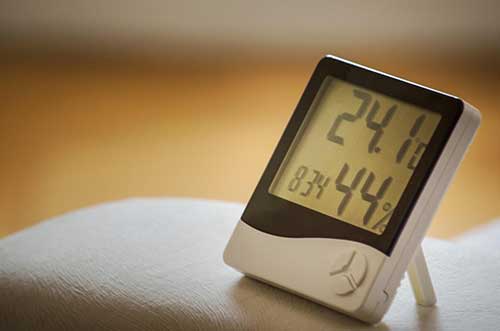
When we think of air pollution, we may envision planes, power plants and smoggy, congested cities, but only a few people are aware that indoor air quality can be up to 10 times worse than outside air quality. Due to the rise in diseases linked to habitation, indoor air pollution is one of the top environmental threats to public health globally. Since most people spend between 80% and 90% of their time inside, indoor air quality has a big impact on sustainability. By making an effort and following these steps to improve the air quality within your home, you may reduce your chance of developing health problems and possibly even enhance your quality of life.
Open the windows

We know this sounds paradoxical while you’re trying to save money on heating and remain warm, but opening windows is the simplest and cheapest way to ensure the high quality of air in your home. Even though it is an obvious solution, it works. Maintaining fresh airflow is really important for letting toxins out and oxygen in. When using chemical-heavy cleaning or decorating solutions, take extra care to keep the space well-ventilated.
Regularly replace your filter
If your home’s air is kept clean by an air filter to prevent the spread of airborne pollutants, changing it regularly is one of the best things you can do. A frequently changed air filter eliminates germs, bacteria, dust, grime, and more. Apart from ensuring that your air is free of contaminants, there are many additional advantages for apartments or houses, including less needless HVAC maintenance, improved system performance, a longer lifespan for your HVAC equipment, and lower monthly energy bills. In addition to enhancing the quality of the air you breathe, replacing your air filter on a regular basis can help you save money.
Test the air quality regularly
We’ve all heard the terrifying stories of homeowners who unknowingly inhaled poisonous gases until it was too late. In particular, in cases of more extreme temperatures, when we close the windows, it may be simple for gases to build up in an enclosed environment and be detrimental to you and your family. Each home needs to have smoke detectors and at minimum one carbon monoxide detector, which will sound an alarm if the levels rise too high. However, because they are challenging to accurately quantify, testing for additional pollutants like chemicals or mold is not advised. In these circumstances, adequate ventilation is frequently enough to improve the air quality.
Remove the smoke
Smoke from several sources may expand inside a home in a domestic environment. Cigarette smoking is a main cause. Due to the almost 4,000 chemicals cigarette smoke emits into the air, smoking poses a special risk to the quality of the air within buildings. A number of health issues can be brought on by these compounds. Giving up smoking is the best idea. But if that’s not feasible, the next best thing is to make sure that you always smoke outside to prevent the inside air from becoming polluted with smoke-related toxins.
Adjust humidity and moisture

Your home’s high humidity levels can produce too much moisture, which raises the risk of mold growth. One easy strategy to stop the spread of mold in your house is to quickly dry any areas that have been affected by water. To make sure the humidity in your house is at the right level, you can also buy a moisture gauge online or at most home improvement stores. If it is not humid outside, just crack open a window to minimize humidity. Installing a whole-house humidifier is a more effective and automated way to guarantee that the humidity level is right throughout the chilly winter months.
Plant a seed of quality air
According to NASA research, plants may eliminate harmful pollutants while exhaling clean air to create a better interior atmosphere. Plants provide a natural feel and great aesthetics to a space. They also have the added benefit of being excellent for our mental health. While having plants in the house is a fantastic idea, it’s crucial to understand that they don’t magically improve the air. Compared to other specialized interventions like appropriate ventilation or air purifiers, they filter air at a considerably slower rate.
It takes dedication and preventative maintenance to keep the air in your house clean and breathable. It’s up to you now that you know a few easy things you can do to guarantee good air quality.
 My Favourites
My Favourites









Speak Your Mind